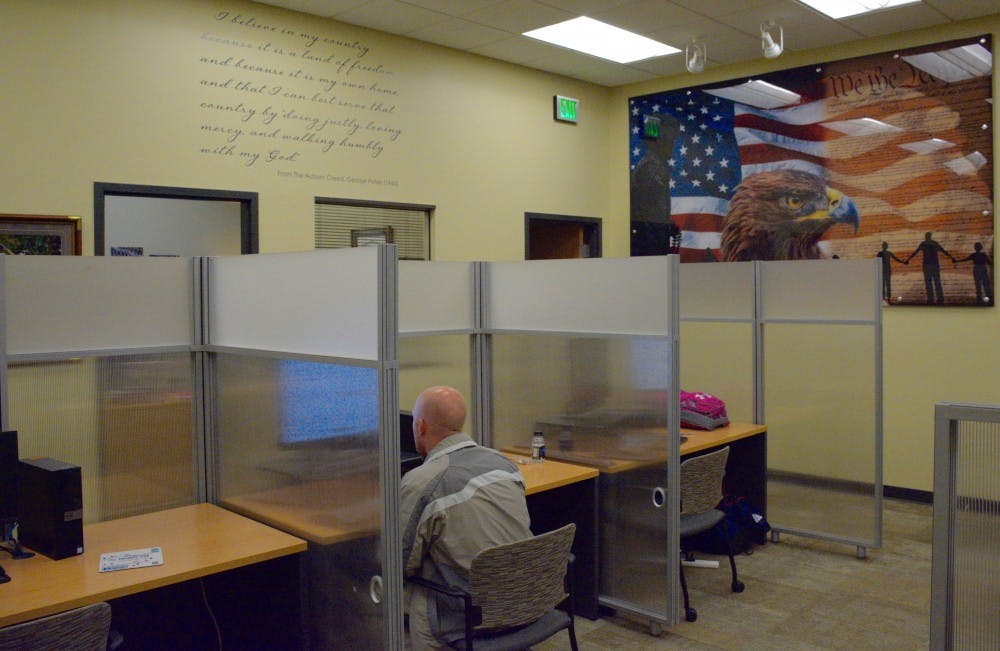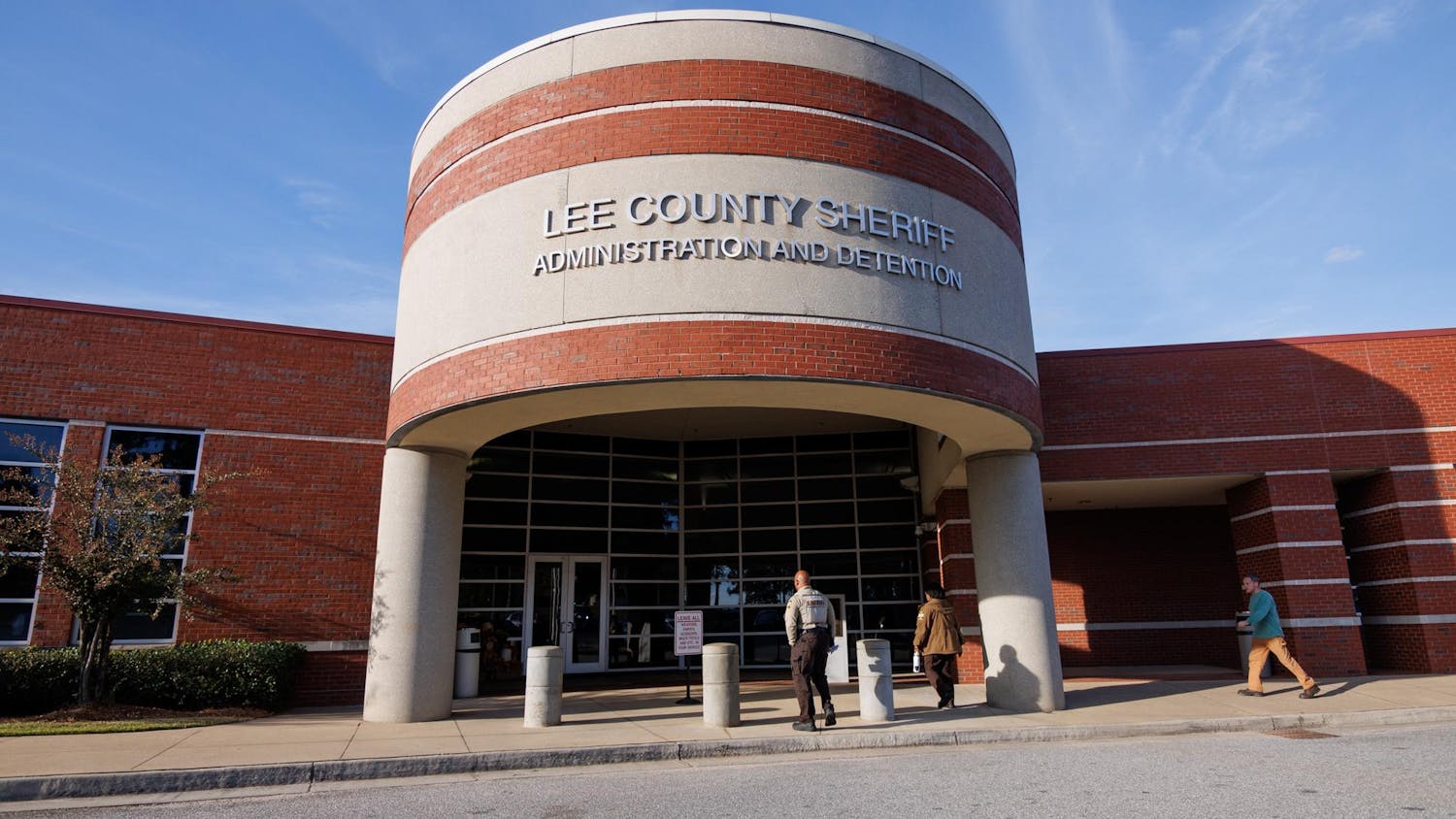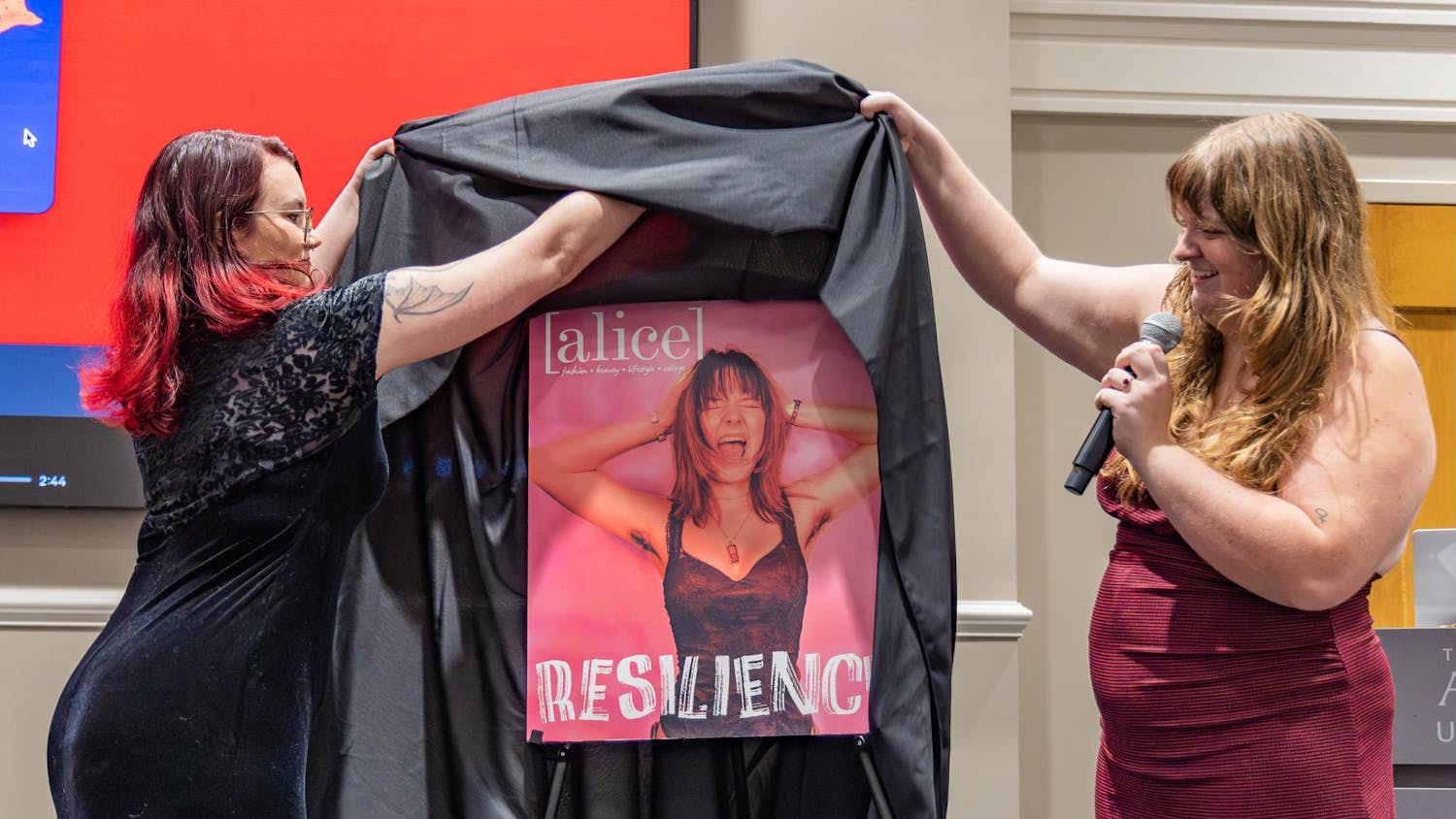Liyah Stewart, freshman in pre-pharmacy, said the people in her lab group turn to her with questions first.
Stewart, a student veteran, has been on her own for a while.
Before coming to Auburn, Stewart spent five years working as a pharmacy technician in the U.S. Army.
Now, she’s a few years older than the vast majority of her freshman peers, many of whom came to college just two or three months after graduating high school.
“The people in my group are glad they have an older person as a lab partner,” Stewart said. “But my age doesn’t have anything to do with it — I’m learning the same material as them.”
Student veterans often experience the adjustment to college life differently than other students in their classes.
Stewart believes the largest advantage younger students have is how much more recently they were in school.
“The last time I took a biology class was about 2009,” Stewart said. “It’s been 10 years.”
Mike Castellani, sophomore in business looking to switch to architecture, agreed. Castellani, who spent nine years in the Army infantry, said it is common for professors to assume every student in the class knows certain concepts and skip over them.
Castellani said this is problematic when his last English class, for example, was in 1994.
“I haven’t been in school in 25 years,” Castellani said. “I don’t know what they’re talking about. I probably never learned what they’re talking about, like I’d never even heard of MLA style.”
Stewart said she also had to get accustomed to taking on the credit hours of a full-time student. While serving in the military, Stewart was enrolled in one or two classes at a time while working a full-time job; moving to 14 hours a semester was a dramatic shift.
“In the Army, school’s primarily used to help you get promoted and stuff like that,” Stewart said. “College has been a huge step.”
Castellani said in the infantry, accessibility to classes gets complicated.
“You could be out in the woods for two weeks or a month and not be near a computer,” Castellani said. “You’re not going to be doing classes.”
Castellani began his infantry career at Ft. Benning and went on to serve in Hawaii, Kuwait, Pakistan, Iraq and Thailand. When he left the Army, he settled in the Auburn area with his family and found a job as a plumber, a position he didn’t want for the rest of his life.
He decided to use his G.I. Bill to pursue an education.
“I wanted my next 40 years to be easier than my last 40 years,” Castellani said.
Michael Pixley, junior in public administration, spent 20 years in the Army infantry before retiring two years ago.
Pixley, who is in his 40s, commutes 40 minutes every day from his home in Phenix City, Alabama, where he lives with his wife and three children.
“I wear two hats,” Pixley said. “I wear one hat when I’m here as a student. Immediately when I get back in my car, I put my dad hat on. I’ve got bills to pay, errands to run, kids to pick up.”
Pixley said his time in the military prepared him to manage the new challenges posed by becoming a student.
“Everybody who joins the military gets a degree of some sort in life,” Pixley said. “The rest of the world is chaos — the Army and the services are organized chaos.”
Pixley said the Veterans Resource Center, located in Foy Union, is instrumental in creating a smooth transition to college life by providing a “home away from home” for student veterans.
Castellani, too, said the VRC does a great deal to make coming to campus less daunting.
“If you didn’t have this office, you don’t have a study partner,” Castellani said. “Other kids get a take-home quiz and get together in their dorms to work on it.”
The VRC gives Castellani a space where he can ask questions and study with people.
Stewart said the office provides tutors who specialize in various subjects, giving student veterans a free resource for help in their classes.
Regardless of their background or major, no student veteran is a stranger to adapting.
“We can mingle with people because we’re used to it,” Pixley said. “We’re used to constant change.”
Castellani said in some ways, student veterans are more prepared than younger students because they’re so familiar with changing circumstances.
“Going from different unit to different unit, we know about different expectations,” Castellani said.
Stewart said she’s stubborn — no matter what, she won’t quit. One thing she learned in the military is the Army doesn’t like quitters.
“The Army says, ‘You don’t want to adapt? OK, bye,’” Stewart said. “Go home to Fort Living Room.”
Do you like this story? The Plainsman doesn't accept money from tuition or student fees, and we don't charge a subscription fee. But you can donate to support The Plainsman.





